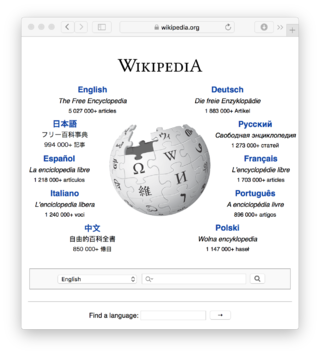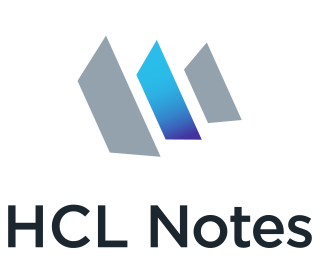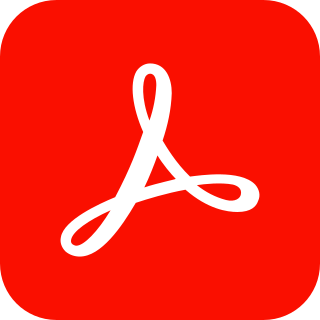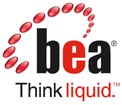
Wiki software is collaborative software that runs a wiki, which allows the users to create and collaboratively edit pages or entries via a web browser. A wiki system is usually a web application that runs on one or more web servers. The content, including previous revisions, is usually stored in either a file system or a database. Wikis are a type of web content management system, and the most commonly supported off-the-shelf software that web hosting facilities offer.

WordPerfect (WP) is a word processing application, now owned by Alludo, with a long history on multiple personal computer platforms. At the height of its popularity in the 1980s and early 1990s, it was the market leader of word processors, displacing the prior market leader WordStar.
Zope is a family of free and open-source web application servers written in Python, and their associated online community. Zope stands for "Z Object Publishing Environment", and was the first system using the now common object publishing methodology for the Web. Zope has been called a Python killer app, an application that helped put Python in the spotlight.

HCL Notes is a proprietary collaborative software platform for Unix (AIX), IBM i, Windows, Linux, and macOS, sold by HCLTech. The client application is called Notes while the server component is branded HCL Domino.

Novell, Inc. was an American software and services company headquartered in Provo, Utah, that existed from 1980 until 2014. Its most significant product was the multi-platform network operating system known as Novell NetWare.

Adobe Acrobat is a family of application software and Web services developed by Adobe Inc. to view, create, manipulate, print and manage Portable Document Format (PDF) files.

BEA Systems, Inc. was a company that specialized in enterprise infrastructure software products, which was wholly acquired by Oracle Corporation on April 29, 2008.
An application program is a computer program designed to carry out a specific task other than one relating to the operation of the computer itself, typically to be used by end-users. Word processors, media players, and accounting software are examples. The collective noun "application software" refers to all applications collectively. The other principal classifications of software are system software, relating to the operation of the computer, and utility software ("utilities").
Web development is the work involved in developing a website for the Internet or an intranet. Web development can range from developing a simple single static page of plain text to complex web applications, electronic businesses, and social network services. A more comprehensive list of tasks to which Web development commonly refers, may include Web engineering, Web design, Web content development, client liaison, client-side/server-side scripting, Web server and network security configuration, and e-commerce development.
A web content management system is a software content management system (CMS) specifically for web content. It provides website authoring, collaboration, and administration tools that help users with little knowledge of web programming languages or markup languages create and manage website content. A WCMS provides the foundation for collaboration, providing users the ability to manage documents and output for multiple author editing and participation. Most systems use a content repository or a database to store page content, metadata, and other information assets the system needs.
Traction TeamPage is a proprietary enterprise 2.0 social software product developed by Traction Software Inc. of Providence, Rhode Island.
Microsoft engineering groups are the operating divisions of Microsoft. Starting in April 2002, Microsoft organised itself into seven groups, each an independent financial entity. In September 2005, Microsoft announced a reorganization of its then seven groups into three. In July 2013, Microsoft announced another reorganization into five engineering groups and six corporate affairs groups. A year later, in June 2015, Microsoft reformed into three engineering groups. In September 2016, a new group was created to focus on artificial intelligence and research. On March 29, 2018, a new structure merged all of these into three.

Microsoft Silverlight is a discontinued application framework designed for writing and running rich internet applications, similar to Adobe's runtime, Adobe Flash. While early versions of Silverlight focused on streaming media, later versions supported multimedia, graphics, and animation, and gave support to developers for CLI languages and development tools. Silverlight was one of the two application development platforms for Windows Phone, but web pages using Silverlight did not run on the Windows Phone or Windows Mobile versions of Internet Explorer, as there was no Silverlight plugin for Internet Explorer on those platforms.

SharePoint is a collection of enterprise content management and knowledge management tools developed by Microsoft. Launched in 2001, it was initially bundled with Windows Server as Windows SharePoint Server, then renamed to Microsoft Office SharePoint Server, and then finally renamed to SharePoint. It is provided as part of Microsoft 365, but can also be configured to run as On-premises software.

Google Wave, later known as Apache Wave, was a software framework for real-time collaborative online editing. Originally developed by Google and announced on May 28, 2009, it was renamed to Apache Wave when the project was adopted by the Apache Software Foundation as an incubator project in 2010.

Linoma Software was a developer of secure managed file transfer and IBM i software solutions. The company was acquired by HelpSystems in June 2016. Mid-sized companies, large enterprises and government entities use Linoma's software products to protect sensitive data and comply with data security regulations such as PCI DSS, HIPAA/HITECH, SOX, GLBA and state privacy laws. Linoma's software runs on a variety of platforms including Windows, Linux, UNIX, IBM i, AIX, Solaris, HP-UX and Mac OS X.

GroupWise is a messaging and collaboration platform from OpenText that supports email, calendaring, personal information management, instant messaging, and document management. The GroupWise platform consists of desktop client software, which is available for Windows,, and the server software, which is supported on Windows Server and Linux.

Software categories are groups of software. They allow software to be understood in terms of those categories, instead of the particularities of each package. Different classification schemes consider different aspects of software.










